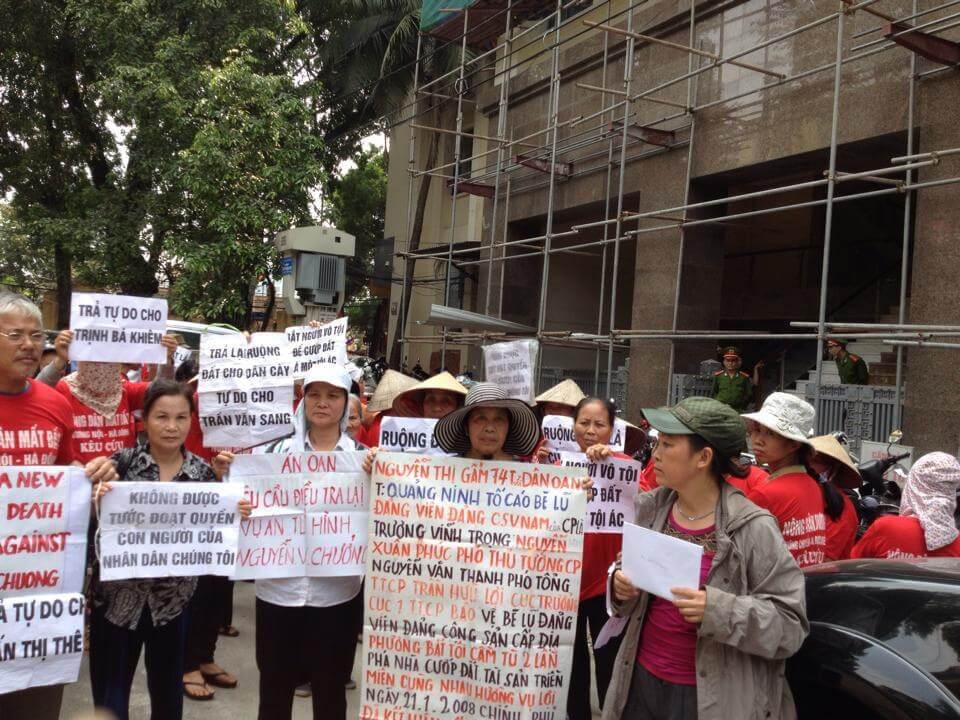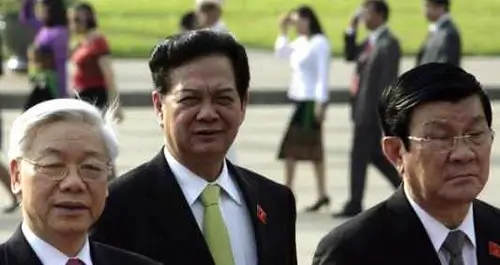
I spent a considerable amount of time on deep dives into a range of publications, from advocacy papers to research from the World Bank and other agencies on Vietnam’s political economy. What I realised when navigating through a carefully curated text was that a prospect of strong momentum of growth was often thematically featured, and that is quite understandable for a country in proximity to the international marine trade routes, and within the Indo-Pacific Region, home to global manufacturing powerhouses, and where most of the global growth lies. The strong momentum of growth characterised by the Vietnamese economy is reflective of the existing drivers of growth within our country and society; that said, geopolitics is one among others.
On the other side of the coin, the existing literature also calls for demands for reforms, whether it is enhancing governance, promoting more openness, or adopting more liberal economic policies. Furthermore, there is a general conclusion that something that is more fundamental and structural must be done to attain sustainable and inclusive growth. All speak to perceivable patterns of issues within our political and economic institutions. While the issues on the surface are well gathered and clearly pronounced, good readings of the problems are not equal to a good prognosis, which requires a deeper understanding of Vietnam’s contemporary political economy.
What the papers on Vietnam fail to pinpoint is that Vietnam’s modern political economy is programmed to sustain injustices and corruption. It explains why it is simply hopeless and illogical to call for the riddance of what the system was built upon to make it “functional”. To be specific, all the advocacy papers seek to be neutral and avoid highly politicised issues, which are taboo for discussion from the government’s point of view. But an absence of discourse over rights and justice does not make ‘recommendation parts’ relevant to the nature of the issues.
1986’s Doi Moi was a transition from central economic planning to a degree of economic liberalisation, in which the market economy with socialist orientation was promoted, meaning the State and SOEs (State owned enterprises) still play a major role, and more importantly, the Party is the sole Country’s leader with the police and the Military pledging loyalty to them. This paved the way for decades of growth induced by foreign investment, manufacturing offshoring to emerging economies from Western countries, and also trade. The new source of revenues was redistributed to the construction sector and development projects, as the communist governors saw that construction is the quick-reaction drug for growth. And their cronies were also quick to identify that land would be the major form of savings and assets in the new economic system that emerged out of the years of extreme poverty and austerity.
Land has always been a pressing issue that haunted our peoples since the past centuries of monarchies, with our society bitterly divided between the peasants without private ownership and the landlords who owned the means of production. The early communists coasted along this divide line and tapped into the land ownership-related grievances to expand their support base. Even though it is possible to say the 19th century of revolutions shook down the system of Landlords and the agricultural society’s culture. A century passed, and Vietnam remained an agricultural society with rural communes and villages across our country.
The Communists were hell-bent on class eradication, which justifies their idea of collective ownership and thus, the elimination of all private ownership. Much forgotten was that land redistribution was central to their set of revolutionary ideas. Ironically speaking, they now have no qualms about re-creating the system of Landlords they once despised. Remember how they once condoned with executions of their family members without trials, who were identified as “Landlords” to save the ‘revolution’.

If land is a new form of assets and savings, it boils down to who amasses more land would be able to control more domains of the political economy. And it is necessarily unavoidable to dispossess the current owners of the existing land. But of course, robbing is always met with resistance, and it has been a political expediency to deploy the police forces to quell resistance from the farmers who dare to oppose. The police officers would feel under pressure to deploy whatever was necessary to put down such protests at God’s speed as it requires for groundbreaking and construction commencement of “development projects”. Such land acquisitions are carried out on the premise of a constitutional clause (Article 17) which states that land is State-owned and thus no private ownership is allowed; and a series of totally unlawful and arbitrary enforcement actions. It shows that when growth picks up, a landlord will come to dispossess someone of their house and agricultural land, and as the logic goes, growth is attained with the illegitimate enrichment of the powerful, and impoverishment and rights abuses suffered by the powerless.
This circle of growth, land grabs, and impoverishment has been multiplied and scaled up over the years, with millions of victims. The incident of Mr. Le Dinh Kinh, a former communist veteran, and his family was ambushed, slaughtered, or arrested by 3000 armed police officers has gone down in history as how the inhumanity and brutality of the Doi Moi brainchild could be.
The early victims often took to legal institutions for lodging their grievances, and no wonder that their cases were dismissed in a rigged justice system that was willing to side with the powerful elite. Indeed, the elite had everything on their side, the enforcement and the court. As a result, corruption has become a new philosophy of doing business. Justice could be bought off if need be.
The policy advocates look forward to reforms, yet an elephant in the room is left unheeded about the nature of the system. It is simply impossible to expect the build-up of a system by also calling for chopping down the pillars that have sustained it, corruption, and injustices. And yet, land is just a case in point of how the current political economy is programmed to perpetuate corruption and injustice, among many other examples.
The Pham Minh Chinh government has, of late, announced a mega project of a national high-speed railway worth nearly 70 billion dollars, speaking to a period of double-digit growth he aimed to kickstart. Putting aside the financial sustainability and feasibility of this Project, how much land resource is required for acquisition, and how many more victims of injustice will this project create? The matter of significance is not the stimulus or economic policies put out to harness growth, but rather, this path of development is not desired anymore.
Mr. Wang Jisi, a Beijing University Professor, wisely argued in his article that the colour revolutions across the World were driven by accrued injustice and demands for freedom as a matter of relevance in Chinese society nowadays. But whether it is a lone voice or a new realisation from the Chinese Communist Party needs more time to become apparent. Likewise, the Vietnamese communist regime won’t be able to escape from this situation.
But if the Doi Moi or market economy with socialist orientation has been put on the dock, deemed to be consigned to be dustbin of history, what is favoured to be adopted? We don’t need a new experiment, as the third wave of democratisation in Eastern Europe, the democratisation-related rise of South Korea and Taiwan, and the rigours of democratic Japan have offered an answer in practice.
A trade war in even in the most optimistic scenario, will cause growth slow-down in the short and medium term. In this regard, the relentless pursuit of manipulated growth by leveraging unhealthy stimulus loans and public investment to whiplash growth will not only be countereffective, but also a recipe for disaster, as it comes at the cost of the future’s unpayable indebtedness or even liquidity. If the GDP might not be going along a sharp vertical line in the years of uncertainty and global restructuring, it is mandatory to institutionalise for sustainable, high-quality growth, together with new drivers of growth. A high quality connotes a sense of growth driven by actual improvement of productivity. But human rights are central to being productive. That goes, it is purely impossible to boost productivity by being labour-intensive; being more creative is the only substantial driver of productivity. But there’s no way to improve creativity and allow creativity to capitalised other than the free exercise of human rights and conscience.

Democracy is not a substitute for humans and human ideas, indeed, but it is a mechanism to address grievances. The communist regimes are not organised to deal with grievances; they built a thick dam to block them. Liberal democracy has actually been efficient in resolving justice-related grievances; nonetheless, other injustices are non-legal, and more dissatisfaction about our economic and cultural institutions, which a backsliding from basic social securities and welfare, responsible tax regimes, and corporate regulations does not help. To be clear, it does not negate democracy and its capability to drive sustainably high-quality growth; it consolidates an argument for democracy in that building institutions for prosperity must go hand-in-hand with the expansion of human rights, having in place not just a justice system and other institutions to guarantee civil and political rights, but also the right political model to foster economic and cultural rights.
Worrying enough, To Lam, the Communist Party’s General Secretary, promises everything but sensible change; that said, the recent development shows the build-up of a police state. Now the police are not only a fraction from within to give the Party rulers instruments of suppression, they are themselves rulers right now. This should be seen as an attempt to shore up the prolonged era of corruption and injustice that plagues our country, and with that in mind, it is baseless to characterise Mr. To Lam as a reformer. And it is equally gullible to suggest that there is a way to reroute from the path of democratic transition to attain prosperity and security in the new political era, and there has been no proof to argue that authoritarianism or any form of autocracy leads to a high-income status and lasting peace.
For all that being said, I beg to differ with the Economist’s current article for claiming that Mr. To Lam has a plan for Vietnam, and his plan will be the last chance for Vietnam to get rich before we get old. That’s purely a grave lack of understanding about Vietnamese political culture. His plan must be scrapped for God’s sake, whilst there has been another plan for democracy and pluralism proposed in Rally for Democracy and Pluralism’s Political Project (Khai Sáng Kỷ Nguyên Thứ Hai, or translated as Opening a Second Era), published in 2015 to conceptualise democracy and pluralism as genuine solutions for our country moving forward. Democracy and pluralism should be given a chance here, and it is indeed the last chance for Vietnam to attain prosperity and global integration in a world of disruptive change.
Chu Tuấn Anh



